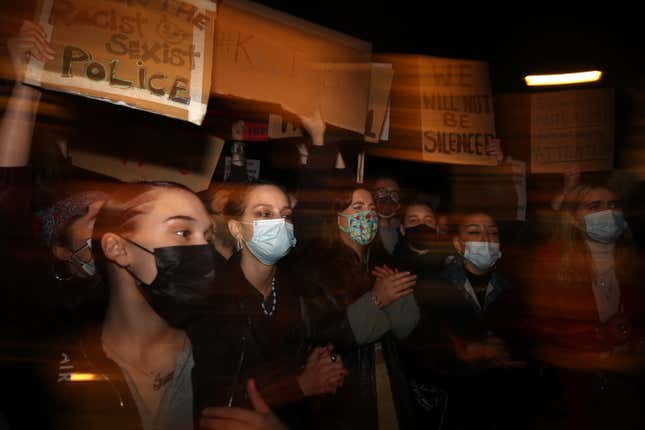Boris Johnson Orders Police to Patrol Bars and Clubs in Disguise to 'Protect' Women From Harassment
Latest

British Prime Minister Boris Johnson’s response to the national outcry over the death of Sarah Everard, who was allegedly killed by a police officer? More police.
At a Monday evening meeting with the government’s crime and justice task force, Johnson agreed to a series of supposed safety initiatives, one of which involves both uniformed and plain-clothes police officers patrolling bars and clubs to “protect” women from sexual harassment and assault.
“We must do everything we can to ensure our streets are safe, and we are bringing in landmark legislation to toughen sentences and put more police on the streets,” Johnson said when the meeting concluded. “We must drive out violence against women and girls and make every part of the criminal justice system work to better protect and defend them.”
-

-

-

-

-

-

-

-

-

-

-

-

-

-

-

-

-

-

-

-

-

-

-

-

-

-

-

-

-

-

-

-

-

-

-

-

-

-

-

-








































